Fr Adolfo Nicolás SJ, 30th Superior General of the Society of Jesus (2008 to 2016), has died at the age of 84 in Tokyo today, 20 May 2020. A memorial Mass (in English) will be celebrated in St Ignatius Church in Tokyo on Saturday, 23 May, 5pm (local time) and will be streamed live here.
To those who knew him, Fr Nicolás was simply “Nico”, a man beloved not only for his inspiring leadership, but also – and above all – for being himself. This was plain in the tributes that flowed quickly.
Superior General Fr Arturo Sosa SJ said of Fr Nicolás: “A wise, humble, and free man; totally and generously given to service; moved by those who suffer in the world, but at the same time overflowing with hope drawn from his faith in the Risen Lord; an excellent friend, who loved to laugh and to make others laugh; a man of the Gospel”.
“Infectious humour, refreshing simplicity, clear insight and natural warmth… Ever so simple, yet carrying a profound wisdom,” wrote Myanmar Superior Fr Mark Raper SJ, who succeeded Fr Nicolás as President of then Jesuit Conference of East Asia and Oceania, now the Jesuit Conference of Asia Pacific (JCAP).
JCAP President Fr Tony Moreno SJ described Fr Nicolás in the same light. “[He] was not known to promote himself. He was not self-referential. He detested clericalism in whatever form. He corrected people who referred to him as ‘Superior General Emeritus’. He wanted to be known as he was without titles.”
Instead, he entreated his brother Jesuits to allow him to simply be “Nico”.
“I am asking you to allow me to be the ‘Nico’ of old times, not the former Fr General or emeritus,” he said, during a celebration to mark his golden jubilee as a priest in March 2017, a little over a month after he returned to the Philippines since stepping down as Superior General.
Even when he was slowed down by his disease, his unmistakable humility showed forth. Once, at the Jesuit Health and Wellness Center in Manila, he told his attending physician, Fr Tex Paurom SJ: “You decide; I obey.” He was in his most vulnerable and most edifying.
Adolfo Nicolás Pachón was born in Villamuriel de Cerrato, Palencia, Spain on 28 April 1936 and entered the Jesuit novitiate of Aranjuez in 1953. He studied at the University of Alcalá, where he earned his licentiate in philosophy.
In an interview soon after being elected Superior General, Fr Nico recalled the time when he was in Juniorate and Fr General Janssens wrote a letter to the whole Society requesting for people to help in different parts of the world. Fr Nico volunteered, saying, “You need people, I am ‘people’, so if I can be of help anywhere, I will go.”
Thus in 1960, Fr Nico found himself in Japan where he studied theology at Sophia University in Tokyo. He was ordained to the priesthood seven years later on 17 March 1967. From 1968 to 1971, he studied at the Pontifical Gregorian University in Rome, from where he earned a doctorate in theology. Upon his return to Japan, he was made professor of systematic theology at Sophia University, teaching there for the next 30 years.
Fr Nico was appointed Director of the East Asian Pastoral Institute at the Ateneo de Manila University in Quezon City, Philippines in 1978 – a post he held for six years. He then went on to serve as rector of the theologate in Tokyo before being appointed as the Jesuit Provincial of Japan. Following his term of office as Provincial, Fr Nico remained in Japan, doing pastoral work among poor immigrants in Tokyo.
In 2004, Fr Nico returned to the Philippines as President of the Jesuit Conference of East Asia and Oceania. In 2008, he was voted Superior General at the 35th General Congregation. While the position of Superior General – like that of the Pope – is a lifelong appointment, Fr Nico resigned in 2016, at the age of 80, noting that the Society needed someone with more energy and health to lead it in an increasingly complex world.
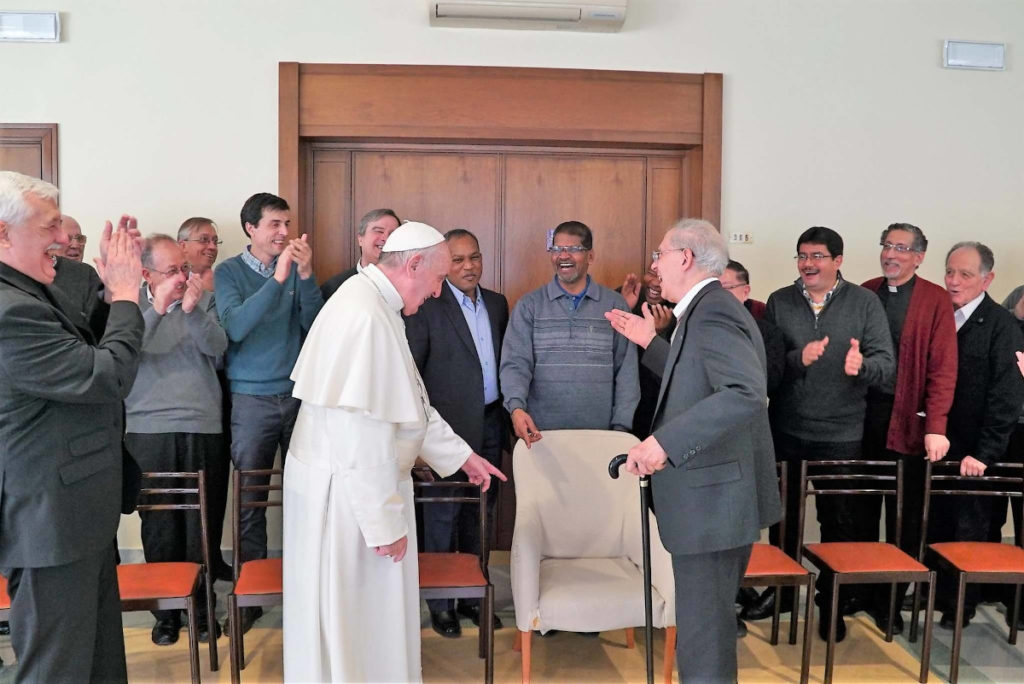
During the eight years of his generalate, Fr Nico insisted on the universality of the Jesuit vocation and mission, and the depth that must characterise Jesuit life. Speaking to Belgian Jesuits in 2010 about a “globalisation of superficiality”, Fr Nico said the Society of Jesus has to help the church to go deep into reality. “How can we understand better what is happening so that we don’t come out saying platitudes, pious things that neither change people nor influence our way of life?”
After his resignation as Superior General, Fr Nico was missioned to the Arrupe International Residence and the East Asian Pastoral Institute in Manila, where he stayed for a little over a year before finally returning to Japan, his home province, on 6 August 2018.
Fr Nico was a happy Jesuit. When he spoke with Jesuit novices in Indonesia in 2009, he told them: “I hope you’ll be happy Jesuits, because you’ll be useless as unhappy Jesuits.” Indeed, Fr Raper wrote that Fr Nico’s core message was: “Be happy, be free, be centred on God and Jesus Christ.”
His youthful energy and spirit was well-testified to by the scholastics he lived with at the Arrupe International Residence. In one interview before he left Manila for Japan, he was asked what his message was to young Jesuits in formation. He said: “Be yourself, but open yourself to Christ, let Christ enter into you.”
There is no forgetting Fr Adolfo Nicolás, the humble man from Spain who spent most of his life in Asia, a man of God – ever wise, ever simple, ever true.
In 2011, Fr Nicolás penned a prayer in Italian after an eight-day retreat with his General Council. This prayer arose from his personal meditation on the miraculous catch of fish in the Gospel of John chapter 21. Here is Fr Nico’s prayer translated in English:
Lord Jesus,
What weaknesses did you see in us that made you decide to call us, in spite of everything, to collaborate in your mission?
We give you thanks for having called us, and we beg you not to forget your promise to be with us to the end of time.
Frequently we are invaded by the feeling of having worked all night in vain, forgetting, perhaps, that you are with us.
We ask that you make yourself present in our lives and in our work, today, tomorrow, and in the future yet to come.
Fill with your love these lives of ours, which we put at your service.
Take from our hearts the egoism of thinking about what is “ours,” what is “mine”, always excluding, lacking compassion and joy.
Enlighten our minds and our hearts, and do not forget to make us smile when things do not go as we wished.
At the end of the day, of each one of our days, make us feel more united with you and better able to perceive and discover around us greater joy and greater hope.
We ask all this from our reality. We are weak and sinful men, but we are your friends.
Amen.
Download the prayer card here.
The Jesuit curia has a website dedicated to Fr Nico’s memorial. Click here to visit.
Read Fr General Arturo Sosa’s letter to the whole Society on the death of Fr Adolfo Nicolás here.

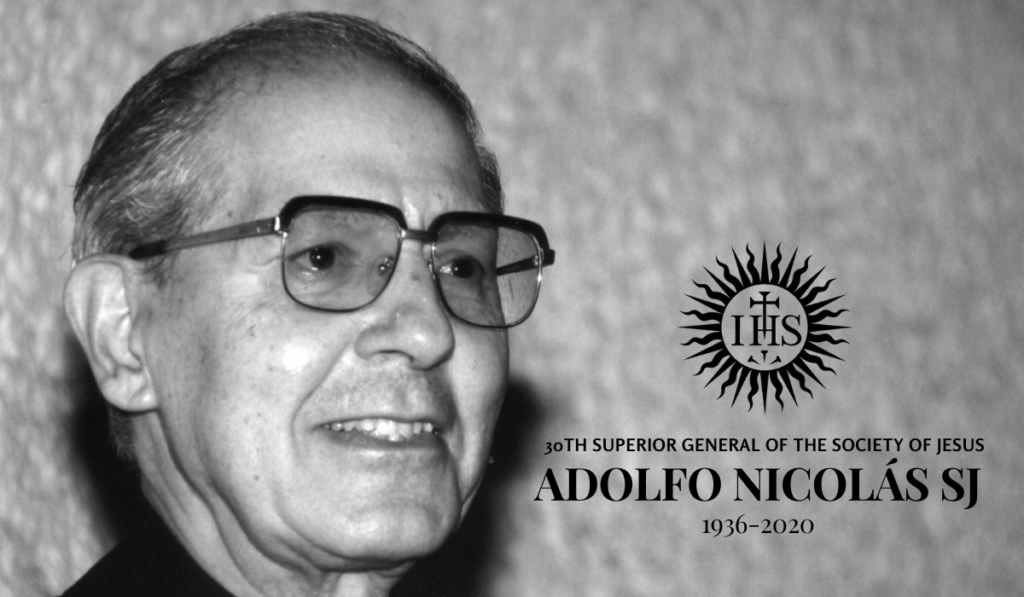
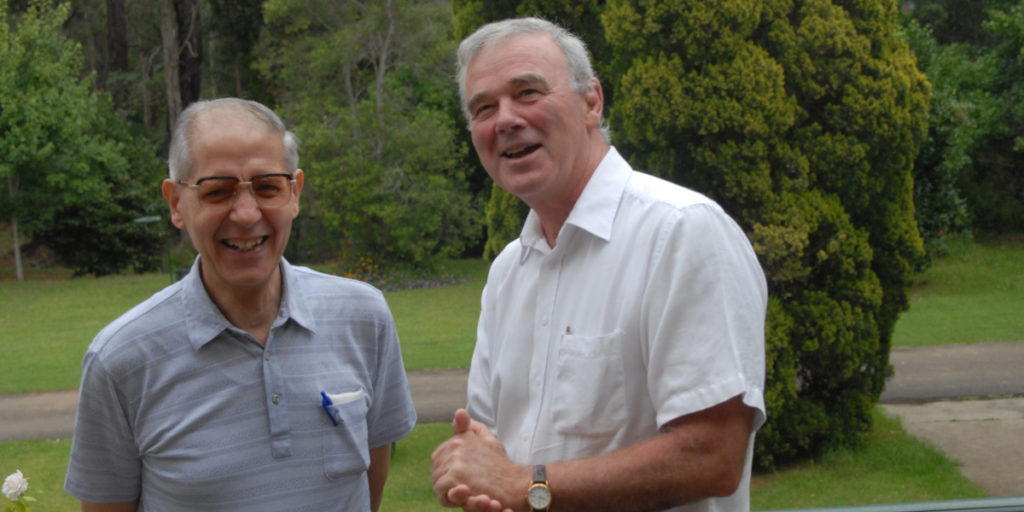
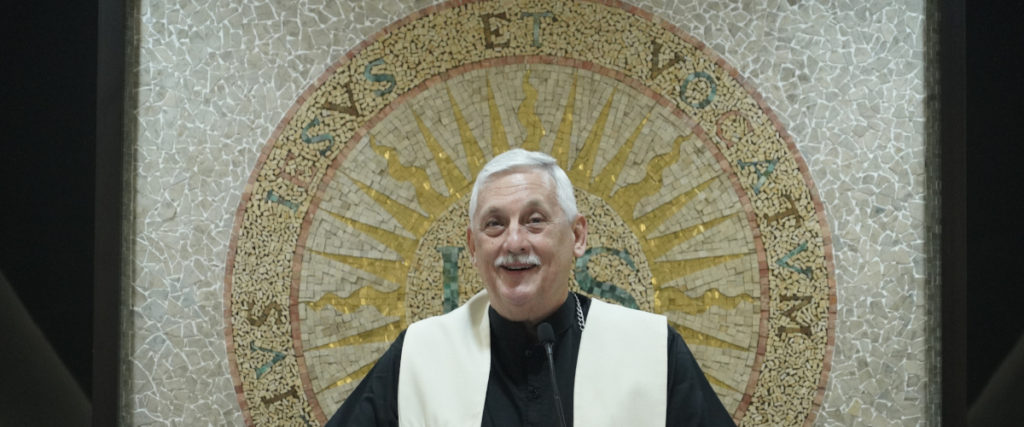
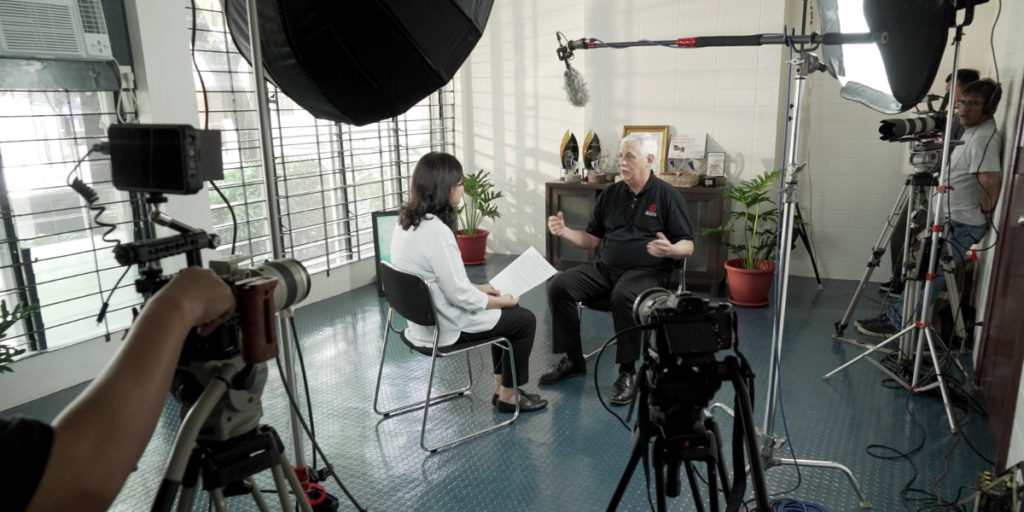
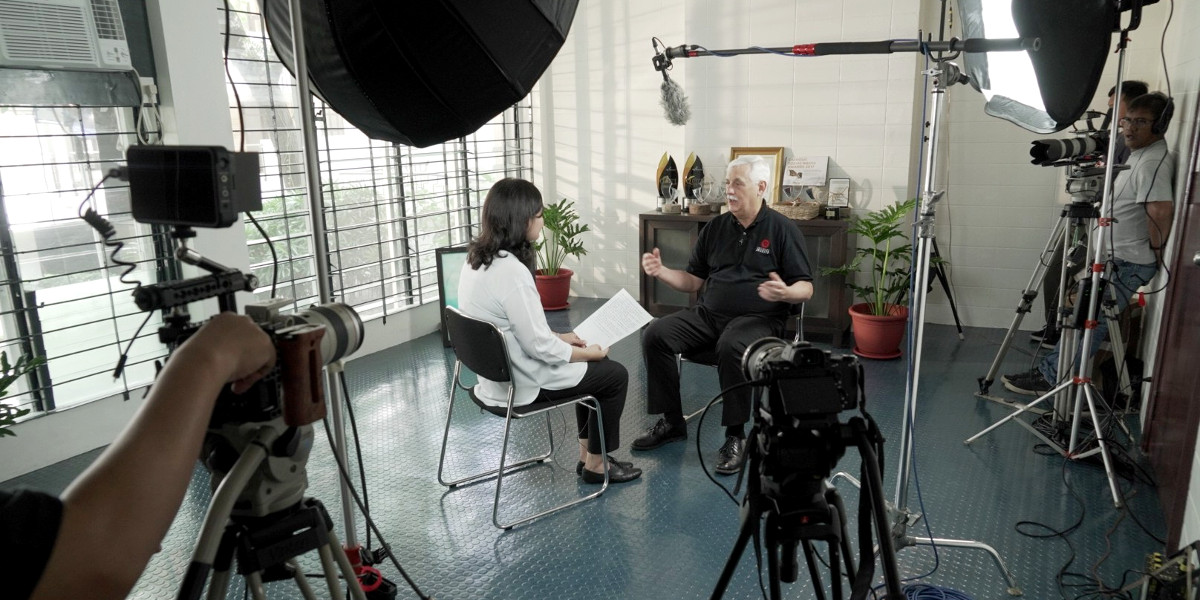
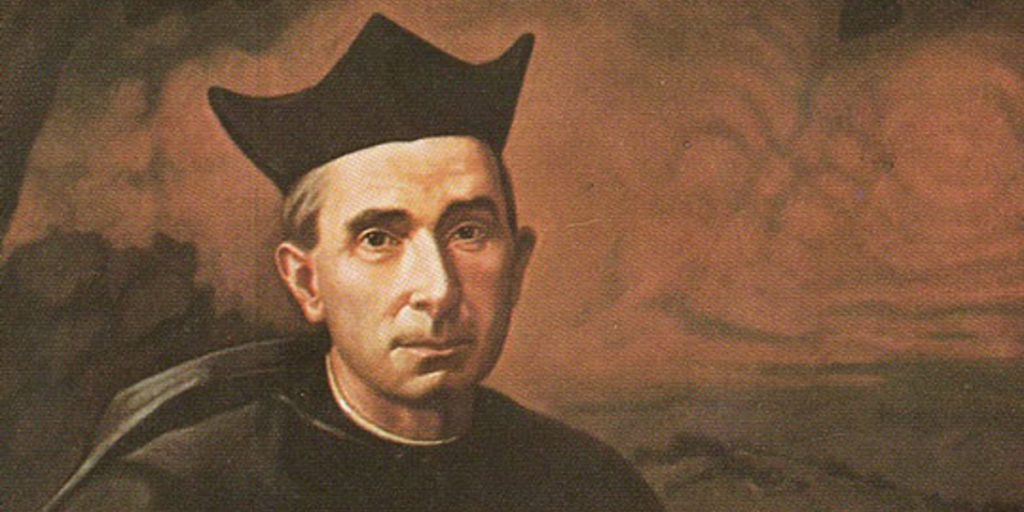
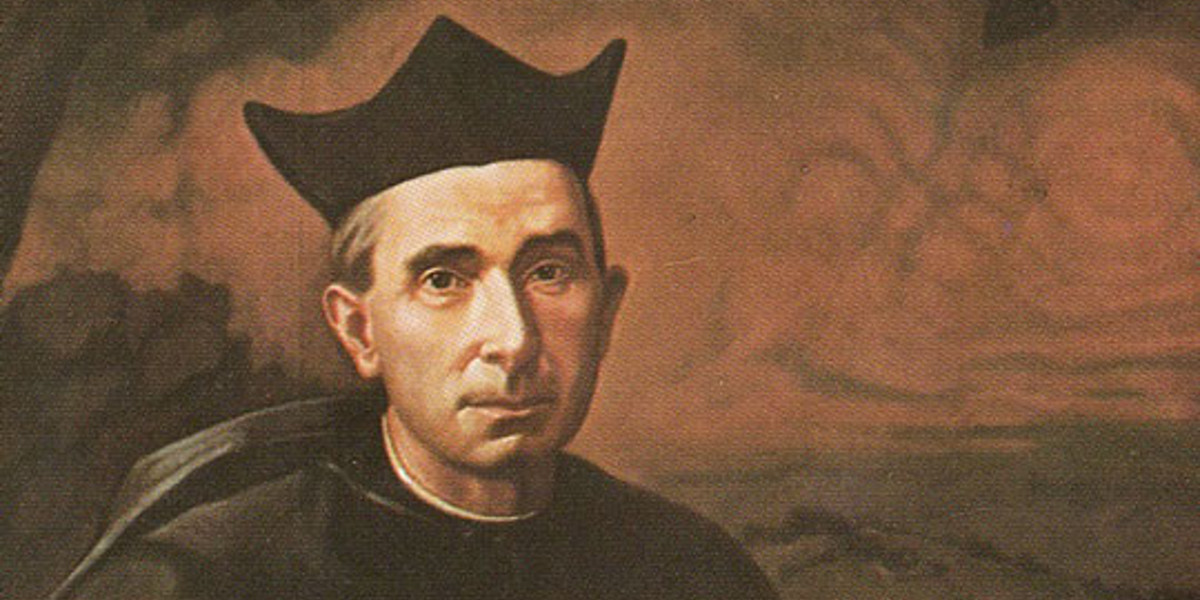
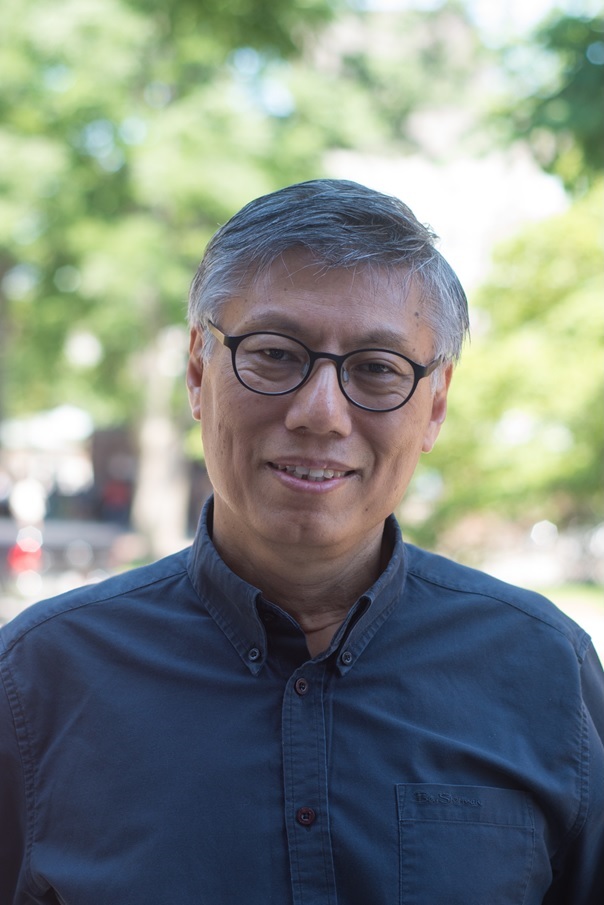
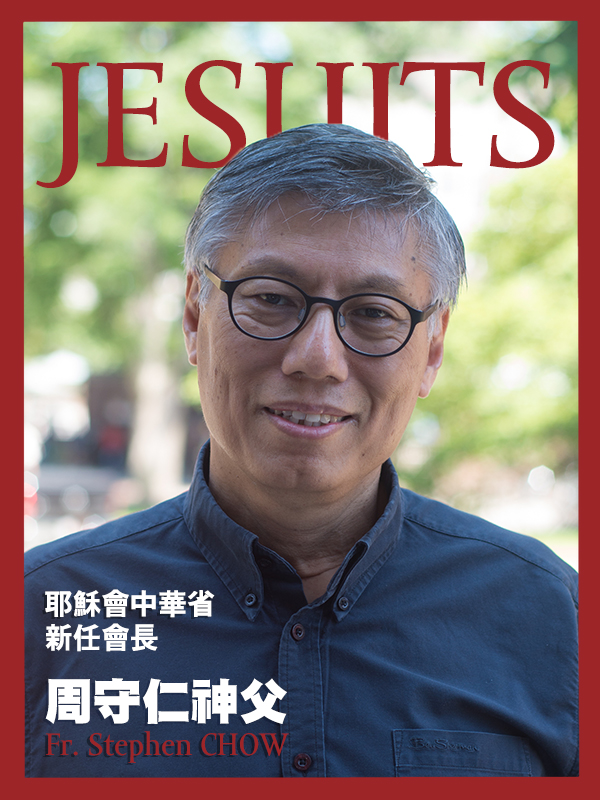 Dear Brothers,
Dear Brothers,